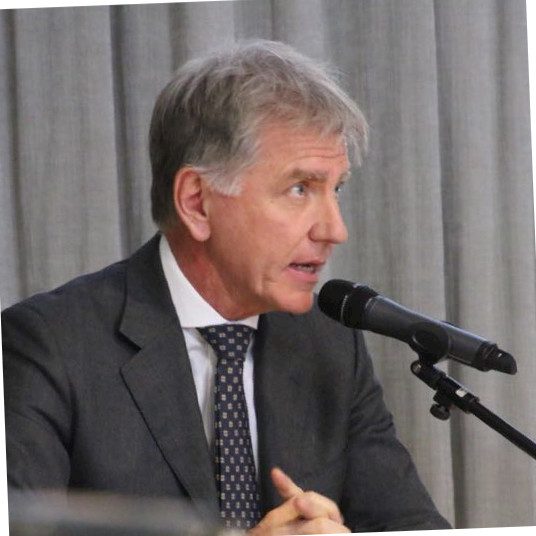PROGRAMMA IN CONTINUO AGGIORNAMENTO
I-RIM 3D 2024
Round Tables
Round Tables will be moderated by Andrea Bettini, science journalist at RaiNews24
Robotics Young Talents
Cosimo Della Santina – Assistant professor – Delft University of Technology (Netherlans)
 Cosimo Della Santina is Assistant Professor at Cognitive Robotics (CoR), TU Delft. He received his PhD in robotics (cum laude, 2019) from University of Pisa. He was then a visiting PhD student and a postdoc (2017 to 2019) at the Computer Science and Artificial Intelligence Laboratory (CSAIL), Massachusetts Institute of Technology (MIT). From 2020, he is affiliated to the German Aerospace Centre (DLR) as external research scientist. For the first eight months of the same year he also held a post doc position at the department of Mathematics and Informatics, Technical University of Munich (TUM). He is now a guest lecturer at the same university. He has been awarded with the 2023 IEEE RAS Early Career Award, euRobotics Georges Giralt Ph.D. Award (2020) and the “Fabrizio Flacco” Young Author Award of the RAS Italian chapter (2019). He also has been a finalist of the European Embedded Control Institute PhD award (2020).
Cosimo Della Santina is Assistant Professor at Cognitive Robotics (CoR), TU Delft. He received his PhD in robotics (cum laude, 2019) from University of Pisa. He was then a visiting PhD student and a postdoc (2017 to 2019) at the Computer Science and Artificial Intelligence Laboratory (CSAIL), Massachusetts Institute of Technology (MIT). From 2020, he is affiliated to the German Aerospace Centre (DLR) as external research scientist. For the first eight months of the same year he also held a post doc position at the department of Mathematics and Informatics, Technical University of Munich (TUM). He is now a guest lecturer at the same university. He has been awarded with the 2023 IEEE RAS Early Career Award, euRobotics Georges Giralt Ph.D. Award (2020) and the “Fabrizio Flacco” Young Author Award of the RAS Italian chapter (2019). He also has been a finalist of the European Embedded Control Institute PhD award (2020).
He was involved as PI for a bunch of European and Dutch Projects, including Natural Intelligence, EMERGE, and one of the subprojects of the Agrifood NxtgenHightech and co-director of the Delft AI lab SELF, and a VENI laureate.
His main research interests include model-based control of soft robots, nonlinear control of underactuated mechanical systems, artificial intelligence emerging from mechanical systems, learning physically consistent dynamic models for use in closed-loop control, developing robotic body parts that are physically intelligent without a body: robotic hands, feet, legs, manipulation of deformable objects and articulated soft quadrupeds.
Letizia Gionfrida – Assistant professor – King’s College London (UK)
 Letizia Gionfrida is an Assistant Professor (UK Lecturer) in Computer Vision in the Department of Informatics at King’s College London where she directs the Vision in Human Robotics (VHR) Lab. She obtained her PhD from the Department of Bioengineering at Imperial College London on kinematics inference from monocular cameras. She then worked as a postdoctoral fellow in the Biorobtics Lab at Harvard University on vision-based algorithms for wearable robotics. In 2023 she joined King’s College London as a Lecturer in Computer Vision.
Letizia Gionfrida is an Assistant Professor (UK Lecturer) in Computer Vision in the Department of Informatics at King’s College London where she directs the Vision in Human Robotics (VHR) Lab. She obtained her PhD from the Department of Bioengineering at Imperial College London on kinematics inference from monocular cameras. She then worked as a postdoctoral fellow in the Biorobtics Lab at Harvard University on vision-based algorithms for wearable robotics. In 2023 she joined King’s College London as a Lecturer in Computer Vision.
She is interested in designing, implementing, and evaluating vision-based models to improve diagnostic, rehabilitation, and assistive devices for individuals with mobility impairments. Currently, she is working on vision applications for robotics, with a particular focus on healthcare applications.
Arash Ajoudani – director of the Human-Robot Interfaces and Interaction (HRI²) laboratory – Istituto Italiano di Tecnologia (IIT)
 Arash Ajoudani is the director of the Human-Robot Interfaces and Interaction (HRI²) laboratory at IIT. He is a recipient of the European Research Council (ERC) proof-of-concept grant 2023 Real-Move and the ERC starting grant 2019 (Ergo-Lean), the coordinator of the Horizon-2020 project SOPHIA, the co-coordinator of the Horizon-2020 project CONCERT, and a principal investigator of the HORIZON-MSCA project RAICAM, and the national projects LABORIUS, COROMAN, and ReFinger. He is a recipient of the IEEE Robotics and Automation Society (RAS) Early Career Award 2021, and winner of the SmartCup Liguria award 2023, Amazon Research Awards 2019, of the Solution Award 2019 (MECSPE2019), of the KUKA Innovation Award 2018, of the WeRob best poster award 2018, and of the best student paper award at ROBIO 2013. His PhD thesis was a finalist for the Georges Giralt PhD award 2015 – best European PhD thesis in robotics. He was also a finalist for the best paper award on human-robot interaction at ICRA2024, the best paper award mobile manipulation at IROS 2022, the best paper award at Humanoids 2022 (oral category), the Solution Award 2020 (MECSPE2020), the best conference paper award at Humanoids 2018, the best interactive paper award at Humanoids 2016, the best oral presentation award at Automatica (SIDRA) 2014, and for the best manipulation paper award at ICRA 2012.
Arash Ajoudani is the director of the Human-Robot Interfaces and Interaction (HRI²) laboratory at IIT. He is a recipient of the European Research Council (ERC) proof-of-concept grant 2023 Real-Move and the ERC starting grant 2019 (Ergo-Lean), the coordinator of the Horizon-2020 project SOPHIA, the co-coordinator of the Horizon-2020 project CONCERT, and a principal investigator of the HORIZON-MSCA project RAICAM, and the national projects LABORIUS, COROMAN, and ReFinger. He is a recipient of the IEEE Robotics and Automation Society (RAS) Early Career Award 2021, and winner of the SmartCup Liguria award 2023, Amazon Research Awards 2019, of the Solution Award 2019 (MECSPE2019), of the KUKA Innovation Award 2018, of the WeRob best poster award 2018, and of the best student paper award at ROBIO 2013. His PhD thesis was a finalist for the Georges Giralt PhD award 2015 – best European PhD thesis in robotics. He was also a finalist for the best paper award on human-robot interaction at ICRA2024, the best paper award mobile manipulation at IROS 2022, the best paper award at Humanoids 2022 (oral category), the Solution Award 2020 (MECSPE2020), the best conference paper award at Humanoids 2018, the best interactive paper award at Humanoids 2016, the best oral presentation award at Automatica (SIDRA) 2014, and for the best manipulation paper award at ICRA 2012.
He is the author of the book “Transferring Human Impedance Regulation Skills to Robots” in the Springer Tracts in Advanced Robotics (STAR), and several publications in journals, international conferences, and book chapters. He is currently serving as an elected IEEE RAS AdCom member (2022-2024), and as chair and representative of the IEEE-RAS Young Professionals Committee, and as a Senior Editor of the International Journal of Robotics Research (IJRR). He has been serving as a member of scientific advisory committee and as an associate editor for several international journals and conferences such as IEEE RAL, ICRA, IROS, ICORR, etc. He is a scholar of the European Lab for Learning and Intelligent Systems (ELLIS). His main research interests are in physical human-robot interaction, mobile manipulation, robust and adaptive control, assistive robotics, and tele-robotics.
Francesco Ferro (PAL) – CEO Pal Robotics (Spain)
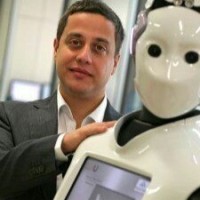 Francesco Ferro is the CEO and co-founder of PAL Robotics, one of the top service robotics companies in the world. He received a BSc+MSc degree in Telecommunications Engineering at Politecnico di Torino in 2002 (Italy), a Master at ISEN (Lille, France) and an Executive MBA at the University of Barcelona (Spain) in 2011. In 2004 he founded PAL Robotics, in 2008 Francesco became the manager of PAL Robotics software department and then he was appointed as CEO of the company in 2011. Passionate about the development of collaborative humanoid robots, Francesco oversaw production of the first fully autonomous biped robot in Europe. Now one of the leading robotics companies in the world, PAL Robotics is involved in a wide range of European research projects and collaborations that aim to improve our everyday lives. Over the last years, the award-winning company has successfully built robots for services and research, contributed to open-source projects and participated in several major robotics competitions.
Francesco Ferro is the CEO and co-founder of PAL Robotics, one of the top service robotics companies in the world. He received a BSc+MSc degree in Telecommunications Engineering at Politecnico di Torino in 2002 (Italy), a Master at ISEN (Lille, France) and an Executive MBA at the University of Barcelona (Spain) in 2011. In 2004 he founded PAL Robotics, in 2008 Francesco became the manager of PAL Robotics software department and then he was appointed as CEO of the company in 2011. Passionate about the development of collaborative humanoid robots, Francesco oversaw production of the first fully autonomous biped robot in Europe. Now one of the leading robotics companies in the world, PAL Robotics is involved in a wide range of European research projects and collaborations that aim to improve our everyday lives. Over the last years, the award-winning company has successfully built robots for services and research, contributed to open-source projects and participated in several major robotics competitions.
Robotics and Society 5.0
Alessandro Francolini – CEO CICERO – Digital Innovation Hub Lazio (Italy)
Alessandro Francolini graduated in 1985 in Engineering from Università degli Studi “La Sapienza” di Roma. He attended the Management Master Executive Program at New York Columbia University and the Executive Sales Management Program at the University of Pennsylvania.He held the position of General Manager in Ericsson Telecommunications SpA until 2020 and was Vice President Ericsson Networks and Vice President Ericsson Service in the South East Europe Market Unit. From 2012 to 2017 he was responsible for Ericsson activities in Israel and Member of the Board of Directors LM Ericsson Israel LTD. He was responsible for Ericsson global Telecom Italia business from June 2007 to January 2018 with a focus on the markets in Italy, Europe and Latin America.He was Vice-President for Unindustria with focus on relationships with University, Research and Technology Transfer. He currently holds the role of CEO of CICERO Digital Innovation Hub Lazio.
Tamim Asfour – Professor at the Institute for Anthropomatics and Robotics – Karlsruhe Institute of Technology (Germany)
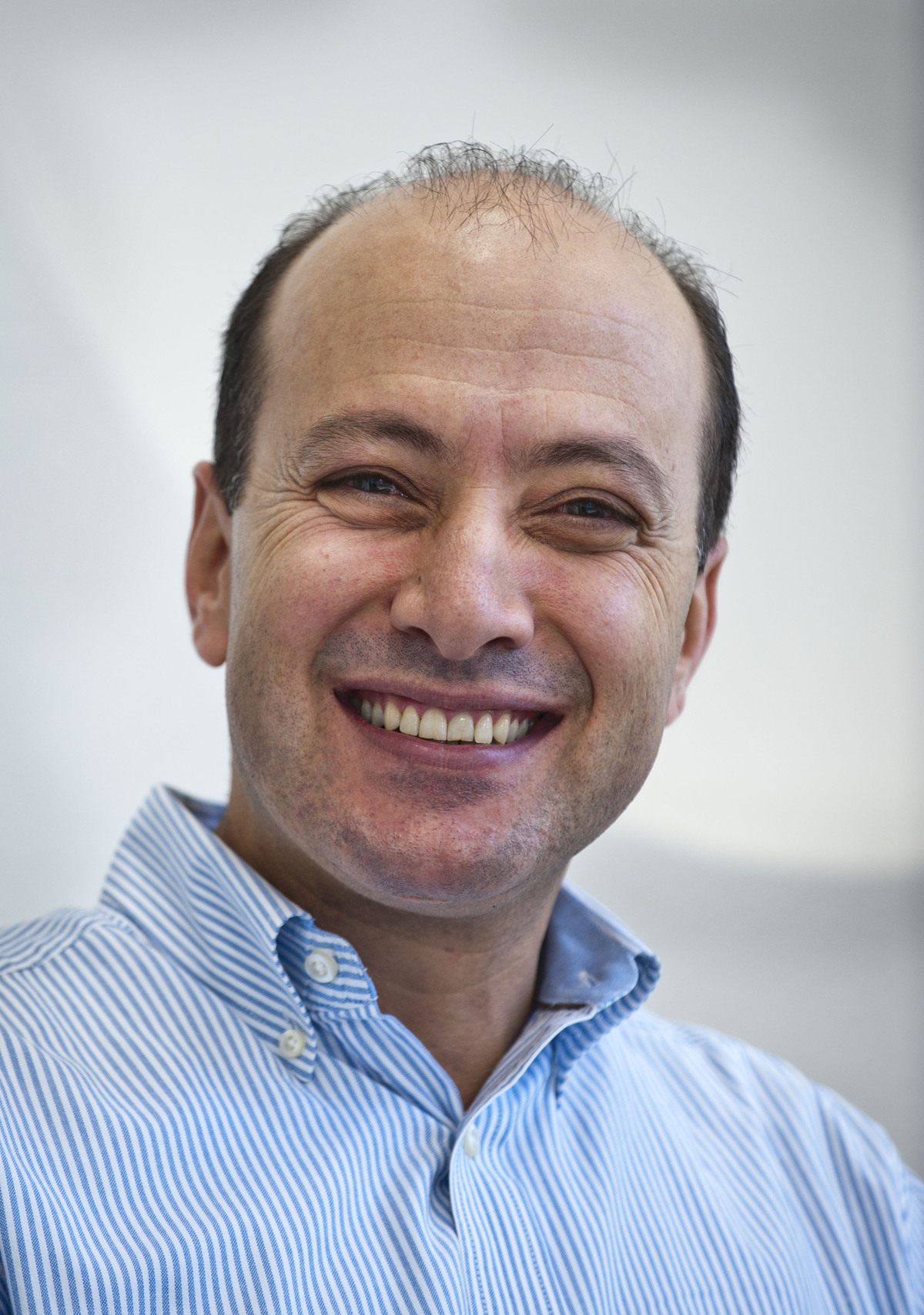 Tamim Asfour is full Professor of Humanoid Robotics and the Director of the High Performance Humanoid Technologies Lab (H2T) of the Institute of Anthropomatics and Robotics at the Karlsruhe Institute of Technology (KIT), Germany. His research focuses on the engineering 24/7 humanoid robotics. In particular, he studies the mechano-informatics of humanoids as the synergetic integration of informatics, artificial intelligence, and mechatronics into complete humanoid robot systems, which learn from humans, experience and interaction with the environment to perform versatile tasks in the real world. Tamim is the developer of the ARMAR humanoid robot family. He has been a visiting professor at Georgia Tech, at the Tokyo University of Agriculture and Technology, and at the National University of Singapore.
Tamim Asfour is full Professor of Humanoid Robotics and the Director of the High Performance Humanoid Technologies Lab (H2T) of the Institute of Anthropomatics and Robotics at the Karlsruhe Institute of Technology (KIT), Germany. His research focuses on the engineering 24/7 humanoid robotics. In particular, he studies the mechano-informatics of humanoids as the synergetic integration of informatics, artificial intelligence, and mechatronics into complete humanoid robot systems, which learn from humans, experience and interaction with the environment to perform versatile tasks in the real world. Tamim is the developer of the ARMAR humanoid robot family. He has been a visiting professor at Georgia Tech, at the Tokyo University of Agriculture and Technology, and at the National University of Singapore.
He is the Editor-in-Chief of the Robotics and Automation Letters (RA-L), the Founding Editor-in-Chief of the IEEE-RAS Humanoids Conference Editorial Board, the Spokesperson of the Robotics Institute Germany (RIG), the president of the Executive Board of the German Robotics Society (DGR), and the scientific spokesperson of the KIT Center “Information · Systems · Technologies” (KCIST).
Yasuhisa Hirata – Professor in the Department of Robotics at Tohoku University (Japan)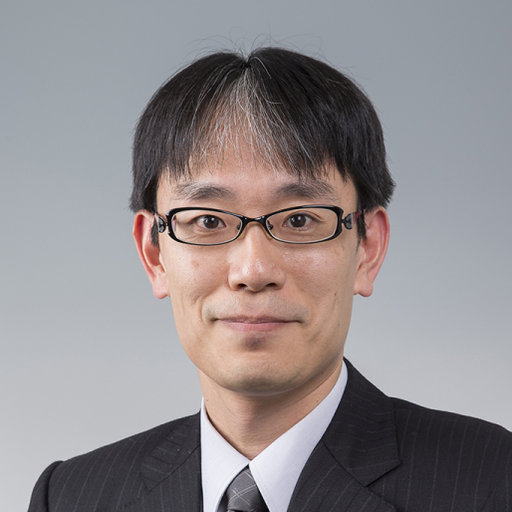
Yasuhisa Hirata is a Professor in the Department of Robotics at Tohoku University, Sendai, Japan. He received his B.E., M.E., and Ph.D. degrees in mechanical engineering from Tohoku University in 1998, 2000, and 2004, respectively. He has been conducting research on Human-Robots Interaction, Multiple Robots Coordination, Factory Automation Robots, etc. He is serving as a project manager of the Moonshot R&D program in Japan. He is also serving as an AdCom member of the IEEE Robotics and Automation Society (RAS) and chair of the IEEE RAS Technical Committee Cluster on The Health and Medical Robotics.
Hermano Igo Krebs – Principal Research Scientist – Massachusetts Institute of Technology, MIT (USA)
 Dr. Hermano Igo Krebs is a Principal Research Scientist and Lecturer at MIT’s Mechanical Engineering Department and the Director of The77Lab (http://the77lab.mit.edu/). He holds an affiliate position as a Visiting Professor at Fujita Health University, Department of Physical Medicine and Rehabilitation (Japan), at Osaka University, Mechanical Science and Bioengineering Department (Japan), at Keio University, Department of System Design Engineering (Japan) and at Loughborough University, Rehabilitation Robotics of The Wolfson School of Mechanical, Electrical, and Manufacturing Engineering (UK). He is a Fellow of the IEEE and was nominated to this distinguished engineering status “for contributions to rehabilitation robotics and the understanding of neuro-rehabilitation.” He received “The 2009 Isabelle and Leonard H. Goldenson Technology and Rehabilitation Award,” from the Cerebral Palsy International Research Foundation (CPIRF), the 2015 IEEE-INABA Technical Award for Innovation leading to Production “for contributions to medical technology innovation and translation into commercial applications for Rehabilitation Robotics,” and he was selected as a 2021 IEEE-EMBS Distinguished Lecturer (2021/2022). He was one of the founders and the Chairman of the Board of Directors of Interactive Motion Technologies from 1998 to 2016. He successfully sold it to Bionik Laboratories, a publicly traded company. He later founded 4Motion Robotics.
Dr. Hermano Igo Krebs is a Principal Research Scientist and Lecturer at MIT’s Mechanical Engineering Department and the Director of The77Lab (http://the77lab.mit.edu/). He holds an affiliate position as a Visiting Professor at Fujita Health University, Department of Physical Medicine and Rehabilitation (Japan), at Osaka University, Mechanical Science and Bioengineering Department (Japan), at Keio University, Department of System Design Engineering (Japan) and at Loughborough University, Rehabilitation Robotics of The Wolfson School of Mechanical, Electrical, and Manufacturing Engineering (UK). He is a Fellow of the IEEE and was nominated to this distinguished engineering status “for contributions to rehabilitation robotics and the understanding of neuro-rehabilitation.” He received “The 2009 Isabelle and Leonard H. Goldenson Technology and Rehabilitation Award,” from the Cerebral Palsy International Research Foundation (CPIRF), the 2015 IEEE-INABA Technical Award for Innovation leading to Production “for contributions to medical technology innovation and translation into commercial applications for Rehabilitation Robotics,” and he was selected as a 2021 IEEE-EMBS Distinguished Lecturer (2021/2022). He was one of the founders and the Chairman of the Board of Directors of Interactive Motion Technologies from 1998 to 2016. He successfully sold it to Bionik Laboratories, a publicly traded company. He later founded 4Motion Robotics.
Alfonso Celotto – Full Professor of Constitutional Law at the Department of Law, Università degli Studi Roma Tre (Italy)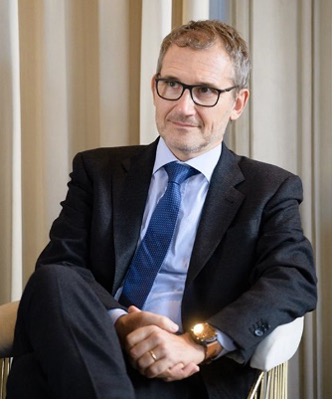
Alfonso Celotto is Full Professor of Constitutional Law at the Department of Law, University of Roma Tre. Graduated with honors and dignity of publication from the Faculty of Law of the Università degli Studi-Guido Carli, he obtained the Ph.D. in Constitutional Law and General Public Law in the Faculty of Law of the Università degli Studi “La Sapienza” di Roma. He has been Visiting Professor of the U.B.A. – Universidad de Buenos Aires; the University of Warsaw and Mc Gill University in Montreal. He has carried out academic and research activities in Italy, France, Spain, Peru, Argentina, Poland, Canada and Australia. He has held numerous institutional positions and has collaborated before the Constitutional Court and the Administrative Magistrates’ Courts. Alfonso Celotto is mainly concerned with the study, also from a comparative point of view, of issues relating to the system of sources, relations between national systems and the European Union system, constitutional justice, the protection of fundamental rights, artificial intelligence and the law of robotics. He is the author of more than 400 monographs, articles, notes and encyclopedic entries in leading scholarly journals.

